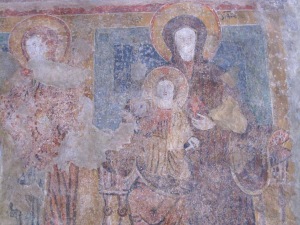After football, one of the greatest past-times in Italy is bemoaning the state of Italian politics. After all, there is nothing quite like the mixture of sheepish chagrin and amusement one feels when hearing that class-act Prime Minster Berlusconi has been caught with yet another outrageous quip, like “I am a man who works hard all day long and if I sometimes look at some good-looking girl, it’s better to be fond of pretty girls than to be gay.” (You can see the news conference here…and hear the resulting applause from the audience.)
In my anecdotal experience, it seems like Italian voters are tired of the corrupt and ineffective Berlusconi machine, but there is no other charismatic leader who has stepped up to the plate and mustered the necessary votes to sweep him out of power. And thus, he stays on.
Perhaps we should go back to politics as we used to know them. I randomly stumbled upon the method for electing the Doge, or the leader of the Most Serene Republic of Venice (~700-1797 AD). The procedure was as follows:
Thirty members of the Great Council, chosen by lot, were reduced by lot to nine; the nine chose forty and the forty were reduced by lot to twelve, who chose twenty-five. The twenty-five were reduced by lot to nine and the nine elected forty-five. Then the forty-five were once more reduced by lot to eleven, and the eleven finally chose the forty-one who actually elected the doge.
The goal was to minimize the influence of the city’s most powerful families and aristocrats. It certainly seems to spread power more effectively than say, the Electoral College system.





